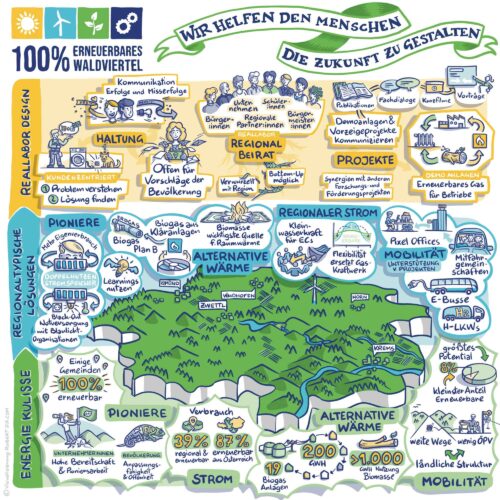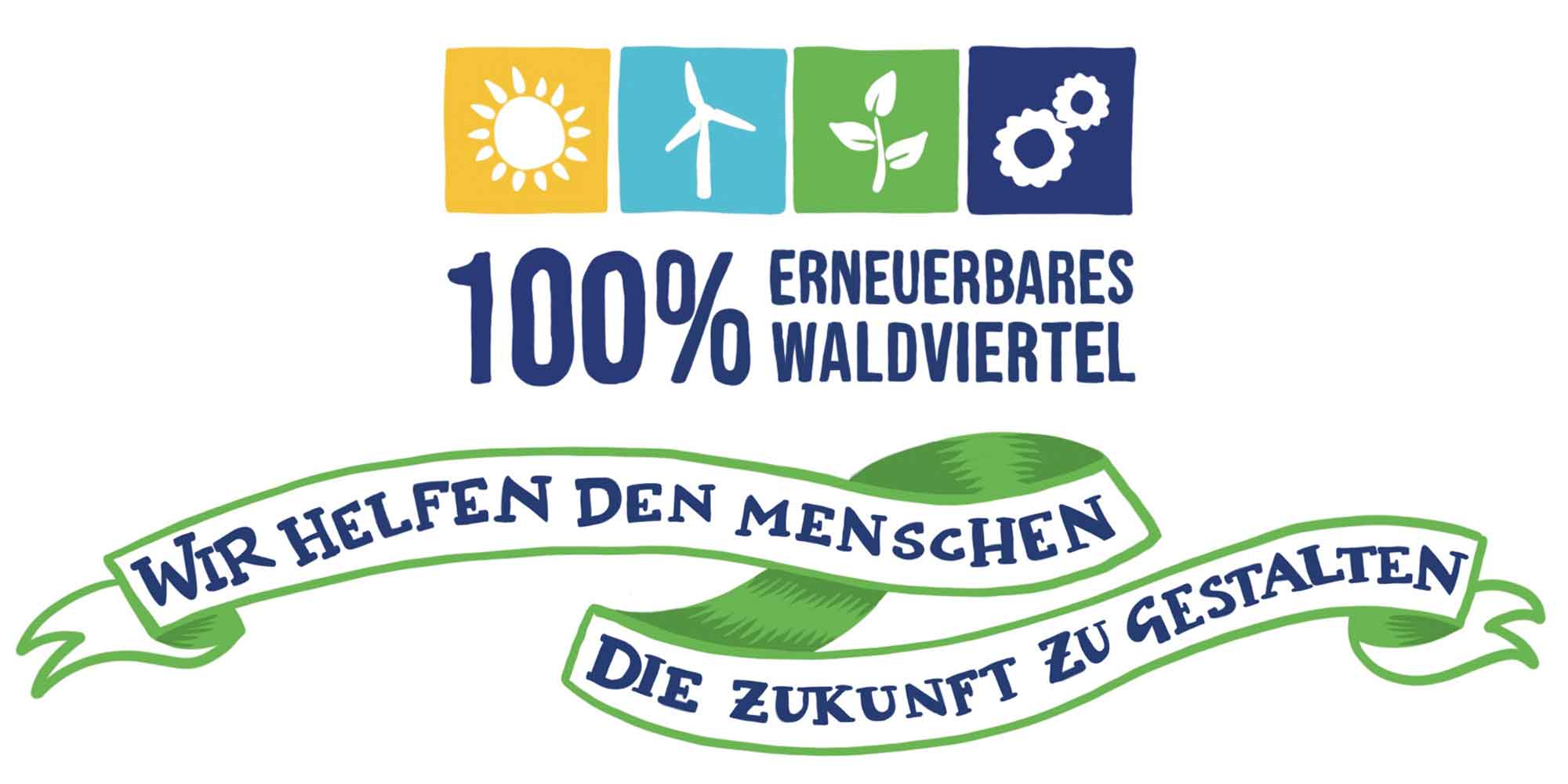The upper Waldviertel (Gmünd, Zwettl, Waidhofen/Thaya, Krems and Horn) with its 110 municipalities has been a pioneer in renewable energy supply for many years now. As part of the exploratory study potential and feasibility studies and a list of measures were carried out, initial concept prototypes and business models were evaluated, and a strategy for running a living laboratory for 100% renewable energy cost-efficiently was devised.
At 41%, the percentage of total energy consumption accounted for by renewable energy sources in the region is already well above the national average (33.4%). However, the analyses identified additional areas of potential such as biomass from forestry: the region has over 190,000 hectares of woodland and only 48% of annual net forest growth is put to use. Solar energy supply (photovoltaics) also harbours significant scope for expansion at 93 GWh.
Two key measures were identified: smart integration of the power, heating and mobility sectors and the shared use of storage systems. Amongst other things, the possibility of integrating renewable energy communities (RECs) into the regional energy supply infrastructure was explored in detail.
The study also focused on the issue of electromobility, which is extremely important for individual motorised transport in rural areas in particular.

